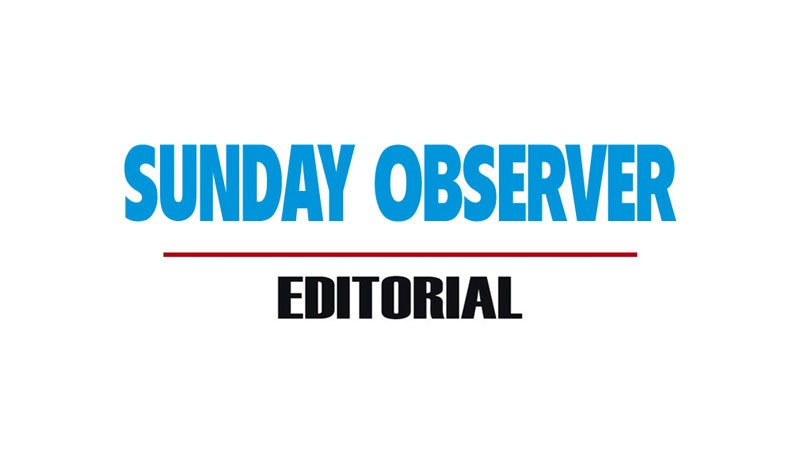History will be made today when Narendra Modi takes oaths for the third time as the Prime Minister of India. This is incidentally the first time that a non-Congress leader has accomplished this feat in the world’s largest democracy.
The guest list for the ceremony also reflects Prime Minister’s Modi’s “Neighbourhood First” policy, with leaders of mostly Indian Ocean Region (IOR) countries invited to grace the occasion. Among them are President Ranil Wickremesinghe, Bangladeshi Prime Minister Sheikh Hasina, Nepalese Prime Minister Pushpa Kamal Dahal ‘Prachanda’, Maldivian President Mohamed Muizzu, Bhutanese Prime Minister Tshering Tobgay, Prime Minister of Mauritius Pravind Jugnauth and President of Seychelles Wavel Ramkalawan. Muizzu stands out from this list, as he is widely seen to be pro-China, having ordered the immediate departure of Indian military personnel stationed on the islands. This could signal a rapprochement between the two nations.
Pakistan seems to be the sole major absentee from South Asia, though it will be in the best interests of both countries if they work things out and make peace. The South Asian Association for Regional Cooperation (SAARC) has been deadlocked for almost a decade due to bilateral issues between the two nuclear-armed nations. India has instead turned to BIMSTEC, of which Pakistan is not a member, to secure its interests in the IOR under the Security and Growth for All in the Region (SAGAR) policy.
But Prime Minister Modi, during his third term, should make a genuine effort to reach out to Pakistan and resolve the vexed bilateral issues. The strained relationship between the two South Asian giants, which has also spilled over into regional geopolitics, has affected South Asia as a whole on the world over. If these issues are resolved, SAARC has the potential to become another Schengen-style zone, with the free movement of people and goods sans borders within South Asia.
Whatever his detractors might say, one has to acknowledge that Modi has turned India into a regional economic, defence and political superpower, if not a global one, despite the woes stemming from Covid.
India boomed during Prime Minister Modi’s first two terms, leapfrogging the United Kingdom (UK) to become the world’s fifth biggest economy and growing by 8.2 percent in the last fiscal year. His “Make In India” campaign has largely been a success, with Apple considering moving most of its production to India from China and Tata-owned Jaguar Land Rover (JLR) starting to make its iconic Range Rovers for the first time outside Solihull, UK.
Electric car giant Tesla has seemingly backed out of India at the last minute, but others are sure to fill in the gap. Modi also took a bold decision to privatise the ailing Air India, which is now controlled by Tata. A resurgent Air India recently placed a massive 500-plane order to match a similar order placed by the private carrier IndiGo.
Economy or defence, India under Modi will be mindful of one crucial factor – China. The giant neighbour is a double-edged sword, as it is India’s biggest trading partner on the one hand (incidentally, both countries are members of BRICS) and a fierce competitor in every other sector on the other.
In this context, it is not difficult to guess why India under Premier Modi has got closer to the Western bloc through military blocs such as the Quad (Australia, India, Japan and UK) primarily to counter the increasing Chinese presence in the IOR. India has also been wary of China’s Belt and Road Initiative (BRI), under which massive infrastructure projects are completed in Asian and African countries.
However, Prime Minister Modi has carefully calibrated his response to world events without necessarily toeing the Western line. For example, India has remained neutral on the Ukraine issue, perhaps mindful of its robust economic and trade relationship with Russia. In fact, both Russia and India are working together for de-dollarisation, whereby Global South countries will be able to trade in Indian Rupees, Russian Roubles and so on. On the issue of Palestine and the Gaza War, India has always stood for the rights of Palestinians, regardless of the Government in power and it was no different under Premier Modi.
Despite the Bharatiya Janata Party’s (BJP) rhetoric on the Kachchathivu Island, (an issue which has anyway not resonated with the voters of Tamil Nadu, where the BJP fared poorly), Premier Modi is known to have a soft corner for Sri Lanka and also for Buddhism. India was the first country to offer vaccines to Sri Lanka to fight the Covid-19 pandemic and two years later, when the economic crisis hit the island nation, extended almost US$ 4 billion in assistance which literally helped it to stay afloat.
The India-Sri Lanka relationship has gone from strength to strength under Premier Modi, with the signing of a comprehensive connectivity agreement covering fields such as transport, Renewable Energy, ports, petroleum, trade and education. Feasibility studies on the proposed land bridge linking the two countries are due to be started soon. This will be a huge opportunity for both countries to increase their bilateral trade volumes, as road freight is much cheaper than sea or air freight.
Premier Modi faces the difficult challenge of uniting India, fractured by ethnic and religious strife in recent times. Fortunately, the 2024 election results showed that voters are not easily swayed by communal or religious rhetoric. This is a good sign that bodes well for the future of India.









